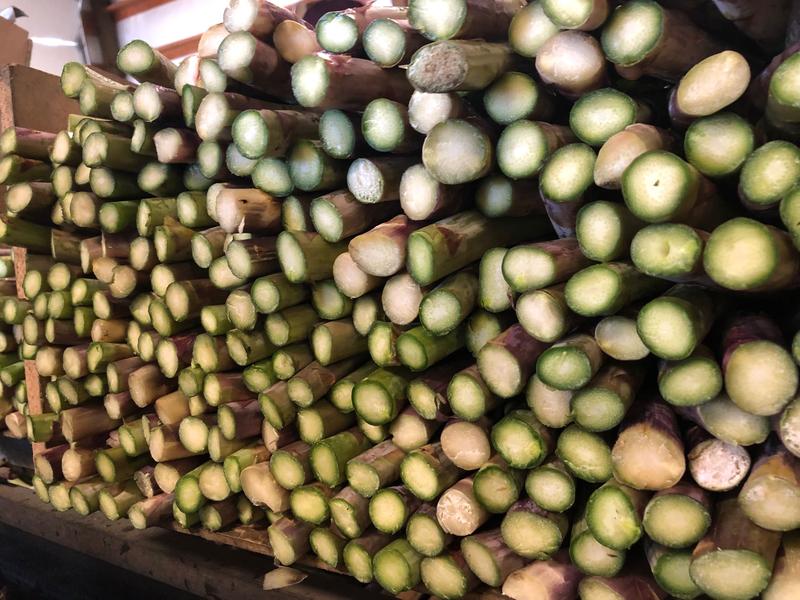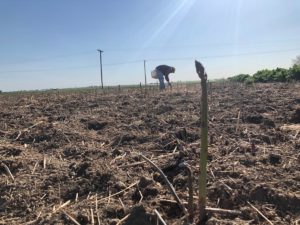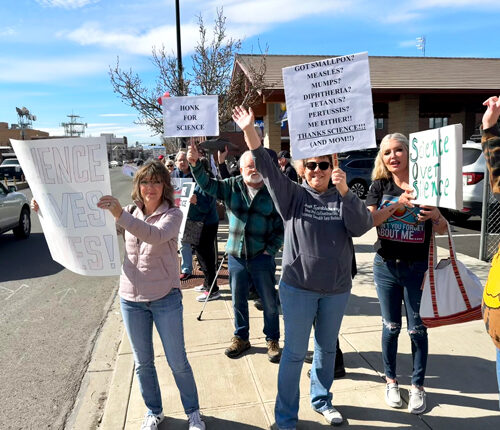
‘On The Tipping Point’ Of The Spear: U.S. Asparagus Farmers Worry As Import Competition Grows
Listen
Asparagus cutters bend deep over their work in the early morning light. Colorful plastic bins stack like giant legos amid the scrubby fields north of Pasco, Washington.
Growers in Washington, California and Michigan raise the majority of the nation’s domestic asparagus — and Washington’s season is on.
But business in U.S. spears is noticeably dwindling.
That’s because there’s increasing amounts of cheaper asparagus from Peru and Mexico coming in: fresh, canned and frozen. And that’s cutting into profits for U.S. growers.
Asparagus commission directors from all three states say the price of labor to cut just one hour in the U.S. is about what a worker earns per day of cutting in Mexico. California’s market has so dwindled that the commission expects to shutter this winter, says executive director Cherie Watte. Now the industry is just concentrating on feeding local consumers who will pay a premium for the regionally-sourced produce.
Alan Schreiber heads Washington state’s commission.
He shows off his own farm’s packing shed with dozens of workers deftly sorting and boxing fat spears of asparagus.

The asparagus harvest is underway in Washington. But there’s much more competition from foreign growers.
CREDIT: ANNA KING/N3
Schreiber says he is aggravated that produce managers in grocery stores are now choosing to carry cheaper foreign asparagus, even during prime season for local growers.
“Nothing bothers us more than to see a grocery store in the Pacific Northwest, carrying Mexican or Peruvian asparagus during our harvest season,” he says. “When it’s April, May and June it ought to be Pacific Northwest asparagus.”
Schreiber says in 1990 Washington grew 100 million pounds of asparagus. Now, farmers here produce just 23 million pounds.
In Michigan it’s largely Peruvian asparagus that’s in the marketplace during the Wolverine state’s season.
John Bakker represents Michigan’s growers and says his state sells fresh but also still has a processing industry. That’s unlike Washington, where the major processors all moved to Peru and other countries. But this uptick in lower-cost foreign imports in the last three years has been significant for Michigan growers.
“We can’t even get the asparagus out of the field for that money, let alone freeze it or can it,” Bakker says. “Looking at the big picture, our consumers need to decide whether they are comfortable with a number of U.S. fruit and vegetable commodities just going out of business and disappearing. We’re on the tipping point of deciding we can do this, or if we just give it up.”
Related Stories:

What’s fuzzy, cute and sold out? Chicks
As egg prices surge, baby chicks have been selling out across the region — and the country. (Credit: Susan Shain / NWPB) Listen (Runtime 3:59) Read The first person showed

Searching for sage grouse: Looking for a chicken-sized needle in south-central WA
Seth Hulett, Audubon Washington’s senior program manager of the Columbia Plateau, searches through his spotting scope for sage grouse. (Credit: Courtney Flatt / NWPB) Listen (Runtime 4:12) Read In south-central

Dozens in Yakima rally to support science for national protest
Around 50 people gathered for Yakima’s Stand Up for Science rally on Friday. People around the country attended science protests at the same time. (Credit: Courtney Flatt / NWPB) Listen















